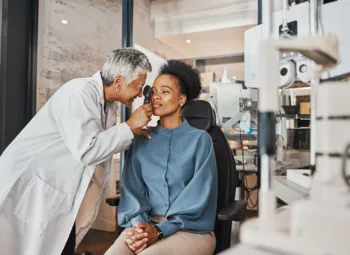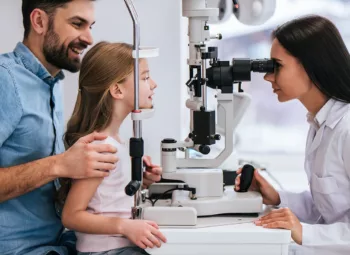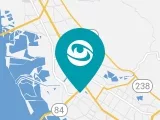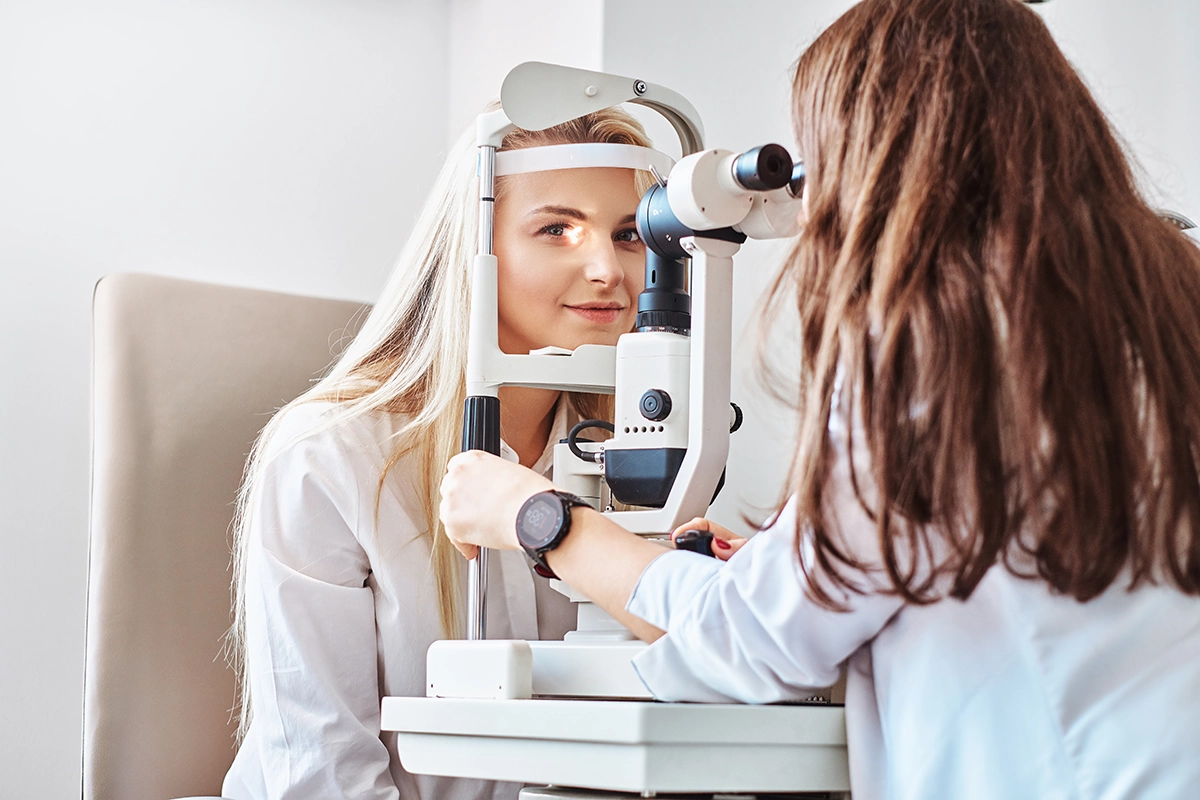
Have you been experiencing blurred vision, frequent headaches, or trouble seeing at night? These could be signs that it’s time to see your ophthalmologist. Regular eye exams are crucial for maintaining healthy vision and detecting potential eye conditions early on. Ignoring visual discomfort or assuming it’s a normal part of aging can have long-term consequences. In this blog post, we’ll delve into key signs that indicate it’s time to schedule an appointment with your ophthalmologist. Whether you’re experiencing subtle changes in your vision or confronting persistent eye-related discomfort, recognizing these signs early on is the first step to ensuring optimal eye health for years to come.
1. Blurry Vision
Blurry vision is one of the most common signs that it’s time to see your ophthalmologist. Experiencing blurred vision can pose a lot of challenges in your everyday life, making it more challenging to perform daily tasks like reading, writing, driving, or activities that require attention to fine details. Blurry vision can be caused by several conditions like nearsightedness, farsightedness, or astigmatism, among others.
If blurry vision is a symptom you’re experiencing frequently, scheduling an appointment with your ophthalmologist is highly advised. Our experienced eye doctor can provide you with comprehensive optical services to help you find a solution that works for you.
2. Headaches
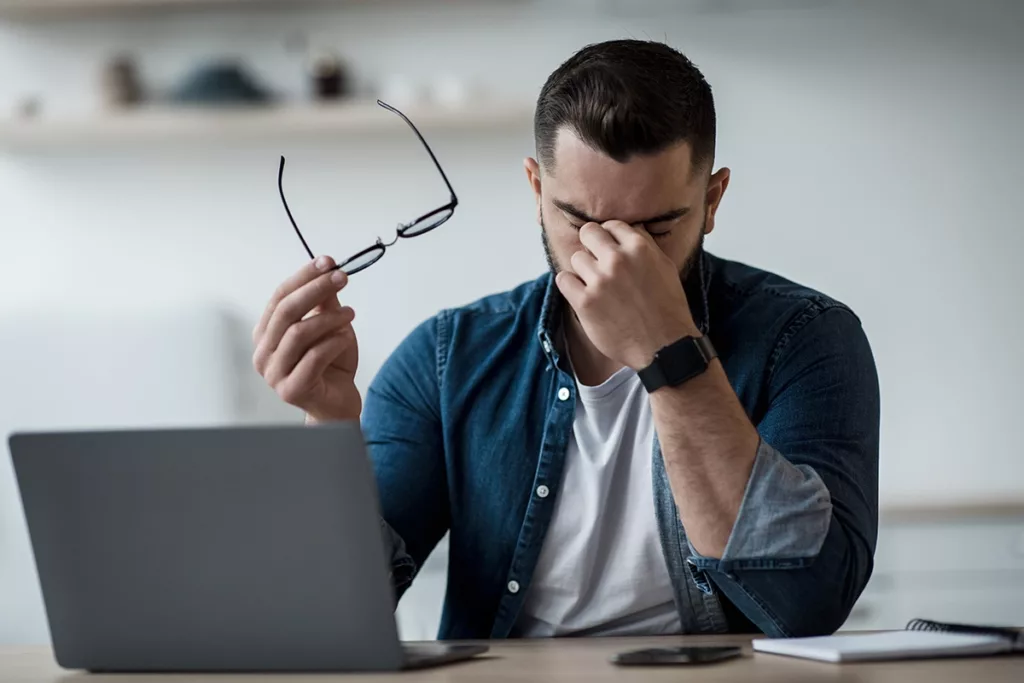
Experiencing frequent headaches might be another sign that it’s time to see your ophthalmologist. While many things can cause frequent headaches, excessive squinting, eye strain, or changes in your vision, can often lead to head pain as well. Headaches, especially those accompanied by visual disturbances known as ocular migraines, can be a clear indication that it’s time to consult an ophthalmologist. Ocular migraines are characterized by temporary vision loss or changes, such as flashing lights or zigzag patterns, oftentimes followed by a headache.
These symptoms can significantly impact your daily life and may be a sign of underlying eye conditions or other health concerns. By seeking the expertise of an ophthalmologist, you can receive a comprehensive evaluation to determine the cause of your headaches and migraines, receive appropriate treatment, and assess the overall health of your eyes and vision.
3. Difficulty Seeing at Night
Difficulty seeing at night is another sign that it’s time to see your ophthalmologist. For many people, issues seeing in low-light conditions are often most noticeable when driving at night. When you’re on the road, it’s important to have clear, healthy vision so you can make out signs, obstacles, and potential hazards. However, if you find yourself having difficulty seeing while driving in the dark, this can be a serious problem. Limited vision in low-light environments can often be a sign of cataracts, so it’s always a good idea to schedule a comprehensive eye exam with an ophthalmologist to rule out serious issues.
A good eye doctor can offer a wide variety of treatment plans to suit your needs, such as prescription glasses, contacts, or LASIK surgery for eligible patients.
4. Squinting to Read

If you find yourself frequently squinting to read, this could be a sign to make an appointment with an eye doctor. If you’re having trouble reading, squinting might seem like an easy solution to a problem that could be more serious than you think. It’s important to tell your ophthalmologist about any changes in your vision, as soon as you notice them, as this could be an early symptom of many degenerative eye conditions including cataracts. A visit with your ophthalmologist is a good alternative to frequent squinting, as they can help you identify the issue and come up with a treatment plan.
5. Eyes Feel Tired or Strained
If your eyes feel tired or strained, this could be another indicator that it might be time to see your ophthalmologist. Eye strain and fatigue can manifest as dryness, burning sensations, or even headaches. It’s crucial not to dismiss these symptoms as temporary discomfort, as they could be a sign of vision-related problems that need attention. If you’re having difficulty performing everyday tasks like reading or writing without frequent eye fatigue, this might mean that your vision needs some extra attention.
Scheduling an appointment with your ophthalmologist can be a great solution for eye fatigue and strain.
6. Pressure in Eye
One of the more serious signs that it’s time to see an ophthalmologist is pressure in the eye. If you’re experiencing eye pressure, this could be an indicator of serious health issues like glaucoma. Glaucoma is a degenerative eye disease that is typically caused by fluid buildup in the eye, which can result in optic nerve damage. Routine eye exams are the best way to detect serious conditions like this. NeoVision Eye Center offers comprehensive glaucoma testing and treatment options.
7. Bringing Objects Closer for Focus (Nearsightedness)
If you find yourself regularly bringing objects closer to your eyes for focus, this might be another sign that it’s time to make an appointment with your eye doctor. Nearsightedness is when you need to be nearer to an object to properly make out the details. This can be a frustrating symptom to deal with since it makes faraway objects appear blurry or out of focus. This symptom is caused by a refractive error, which happens when your cornea’s shape doesn’t allow for light to pass through properly.
Treatments like prescription eyeglasses and LASIK surgery can be good solutions for nearsightedness, so make sure to contact your ophthalmologist if you find yourself struggling with this symptom.
8. Pulling Objects Away for Focus (Farsightedness)
An additional indicator that you might need an appointment with an ophthalmologist is farsightedness. If you often find yourself pulling objects farther away from your face to focus, you might be farsighted. This means that you see more clearly when objects are far away, and objects close by tend to be blurry.
Like nearsightedness, farsightedness is caused by a refractive error in your cornea that can make it challenging to see clearly in specific situations. Consulting your ophthalmologist is a good step to take if you need help with this symptom.
9. Changes in Eye Appearance

Changes in eye appearance is another sign that it might be time to see your ophthalmologist. Symptoms like redness, discharge, swelling, or changes in the color of your eyes could indicate a variety of concerns that should be addressed by an eye doctor immediately. Changes in the appearance of your eye could indicate an eye infection, seasonal allergies, or dry eye, among other things. Making an appointment with an eye doctor will rule out other health issues and ensure you receive optimal treatment that best suits your needs.
10. Light Sensitivity
Light sensitivity is another important eye symptom to pay attention to. This is because light sensitivity can often be an early indicator of more serious eye diseases like cataracts, which can lead to blindness when left untreated. Some other possible reasons behind your light sensitivity include pink eye, dry eye, and seasonal allergies. Whatever the cause, a comprehensive eye exam with an ophthalmologist can help you find a solution.
11. Floaters & Flashes
If you’re experiencing floaters and flashes, it might be time to schedule an appointment with an ophthalmologist. Floaters typically manifest as small moving specks that appear in your field of vision. These are often paired with light flashes and are common visual symptoms that can develop with age. Some common causes of floaters & flashes include:
- Nearsightedness (Myopia)
- Vitreous or retinal detachment (natural detachment of vitreous gel or retina with age)
- Tears or holes in retina
While some floaters can fade over time, seeing an ophthalmologist is a good way to rule out potential underlying health conditions and discuss possible treatment.
12. Eye Pain

Eye pain is a good reason to see your ophthalmologist. In addition to being uncomfortable, eye pain can be an indicator of underlying health issues. Common types of eye pain include aching, throbbing, itching, and burning. Eye pain can often be caused by:
- Eye infections and inflammation
- Glaucoma
- Dry eye
- Eyestrain
- Eye allergies
- Corneal abrasions (scratches)
- Issues with your contact lens
- And more
An appointment with your ophthalmologist can help you access relief and comprehensive treatment plans.
Schedule an Appointment with an Ophthalmologist in Union City at NeoVision Eye Center
NeoVision has a wide variety of vision services to ensure all our Union City patients have access to the eye care that they deserve. If you notice any of these vision signs, feel free to call our office at 1-510-431-5511 or fill out the form below to schedule an appointment today.
Take Control of Your Eye Health by Scheduling an Eye Exam Today
Fill in the form below to schedule a routine eye exam with our Union City Ophthalmologist to ensure the health of your eyes and vision.
"*" indicates required fields

